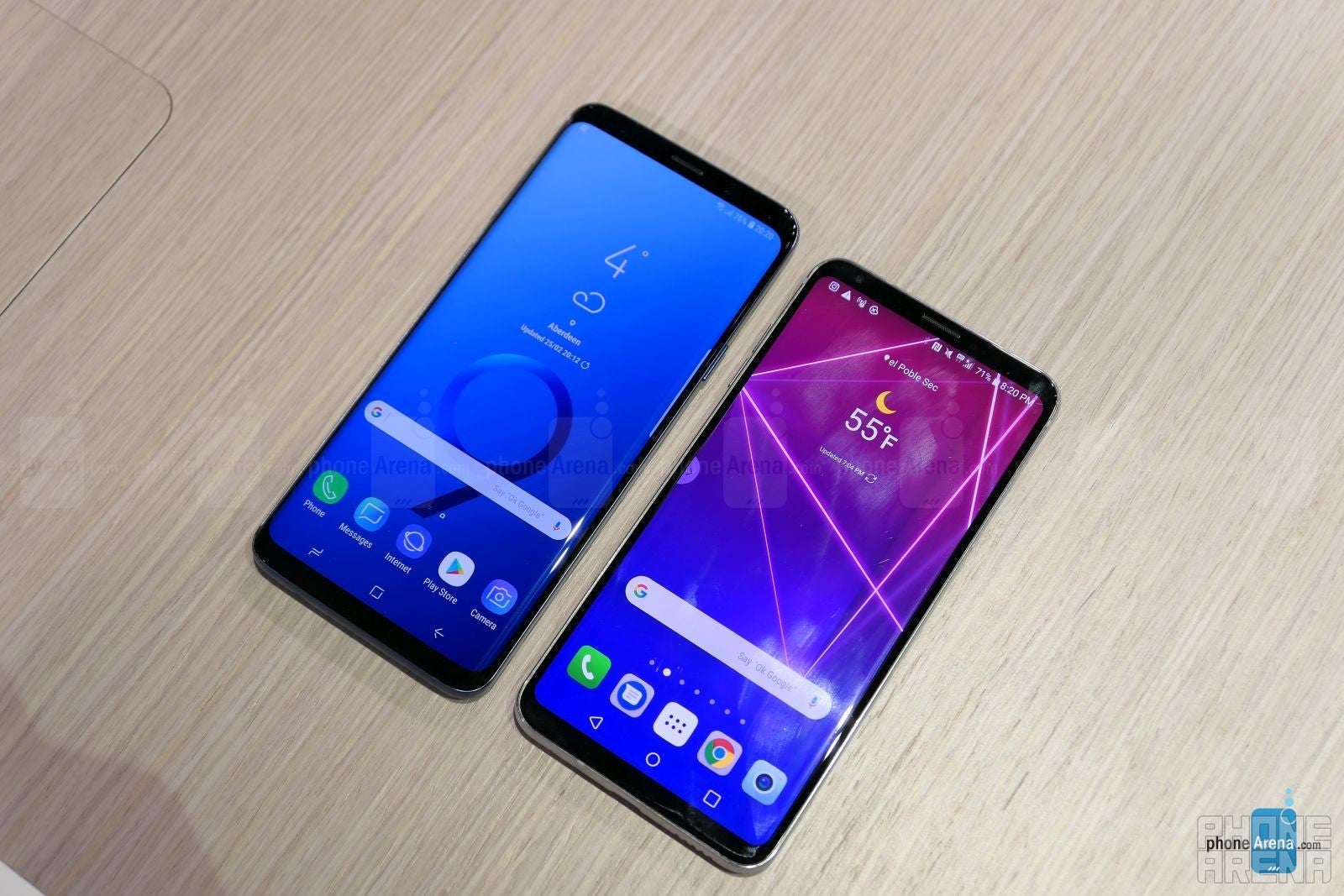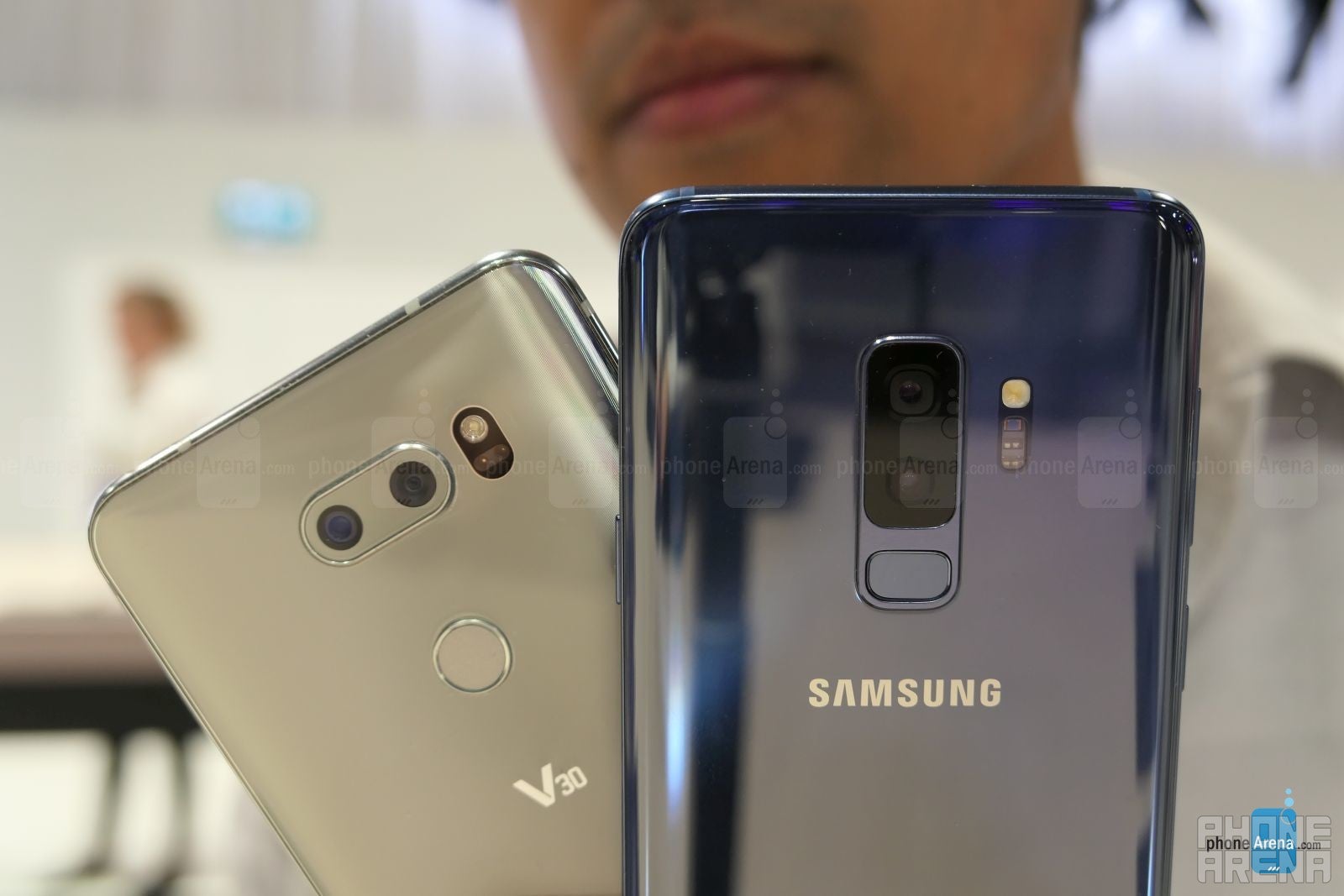Samsung Galaxy S9+ vs LG V30: first look

Last fall, LG surprised many with its video-centric V30 smartphone, which many claimed to be one of the most underrated phones released last year. Now that the Samsung Galaxy S9+ has been officially announced, the V30 is going to be seeing stiff competition with this latest member into the dual-camera club. Packing the latest hardware, along with a brand-new camera configuration, the S9+ is surely going to be the talk of the town for a bit! The LG V30, on the other hand, will want to keep the conversation squarely to itself.
Design
Employing that oh-so premium metal meets glass construction, these giant-sized smartphones have several stunning qualities about their designs. For starters, both are available in various color, but it's especially enchanting how light bounces beautifully off their glass surfaces in a radiant fashion! Ultimately, though, it's a tough decision to concretely say who has the better-looking design.
Display
When it comes to displays, these two don't disappoint with what they offer, just because they're exceptionally detailed, offer wide viewing angles, and punchy colors – the hallmark qualities of OLED technology. The S9+ flaunts the larger 6.2-inch 1440 x 2960 Super AMOLED display, but the V30 technically offers a higher pixel density count because of its smaller 6-inch 1440 x 2880 POLED display. In reality, however, you wouldn't be able to tell who has the better details.

User Interface
Frankly speaking, there's not a huge overall to the new Samsung Experience running on the S9+ – it's very similar to what we found on the Note 8 and S8+ previously. LG's custom experience running on top of Android follows a very similar strategy with its clean and minimalist experience. It's seriously interesting to see how the two rivals follow one another, evident in features like the Edge Panel with the S9+ for creating quick shortcuts, as well as the similar functioning floating bar with the V30.
Quickly running through the software and interface, they exhibit the same buttery responses that we'd expect to see from high caliber phones. Then again, the S9+ should benefit from being powered by the Qualcomm Snapdragon 845 SoC. Sure, we know that the Snapdragon 835 chip powering the V30 isn't a slouch, as it's more than capable of handling gaming, but the optimizations made to the Snapdragon 845 should outperform its older relative.
Camera
Dual cameras are in play with these two, but their implementations are totally different. Whereas the dual camera setup on the V30, a 16MP sensor paired with a wide-angle 13MP one, delivers wider coverage for shooting photos and videos, the 12MP dual cameras on the S9+ enables it to produce those portrait shots with bokehlicious backgrounds. In addition to that, the S9+ setup delivers an astounding wide aperture of f/1.5 – edging out the f/1.6 aperture of the V30.
Over on the video side, the LG V30 continues to enthrall for being one of the very few to offer true manual video controls, which is something that content creators really appreciate. And it helps, too, that the wide-angle lens allows for some intriguing perspectives that other cameras are unable to obtain. Still, we will certainly agree that the S9+'s 960 FPS capture at 720p will make for some astounding slow-motion footage – besting the 240 FPS rate ay 720p with the V30.

Battery
The specs would indicate that the S9+ has a slight advantage with its 3500 mAh battery, a slight step up over the V30's 3300 mAh capacity. Nevertheless, we'll have to put the S9+ through our usual testing to uncover if it's indeed a better performer. At the very least, these two offer their respective fast-charging and wireless charging solutions.
Expectations
The LG V30 solidified itself as a serious contender over the holiday season for its high-end specs, video capturing features, luxury amenities, and most importantly, a price point that undercut its main rivals at the time. From the looks of it, the S9+ will be priced somewhere around $840 to $930 depending on the carrier – while the V30 fetches for around $800 currently.
Factoring how the S9+ is flaunting some newer hardware, the miniscule difference between the two is almost insignificant – making it appear as though the S9+ would be the better buy. Naturally, there are several things to consider before making a final decision. Take for instance their cameras, wherein one specializes in photography, while the other takes pride in video. It's a tough call regardless, but it'll be only a matter of time before we can pass judgment.
Follow us on Google News













Things that are NOT allowed:
To help keep our community safe and free from spam, we apply temporary limits to newly created accounts: